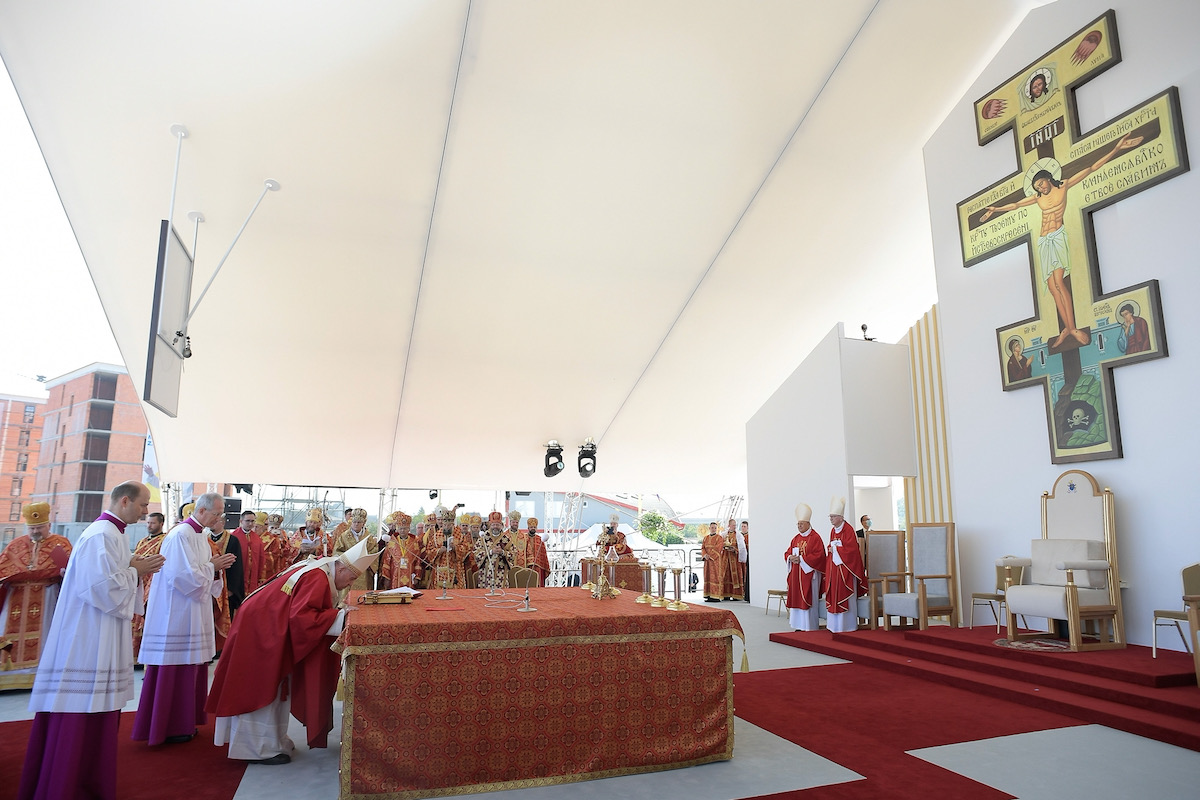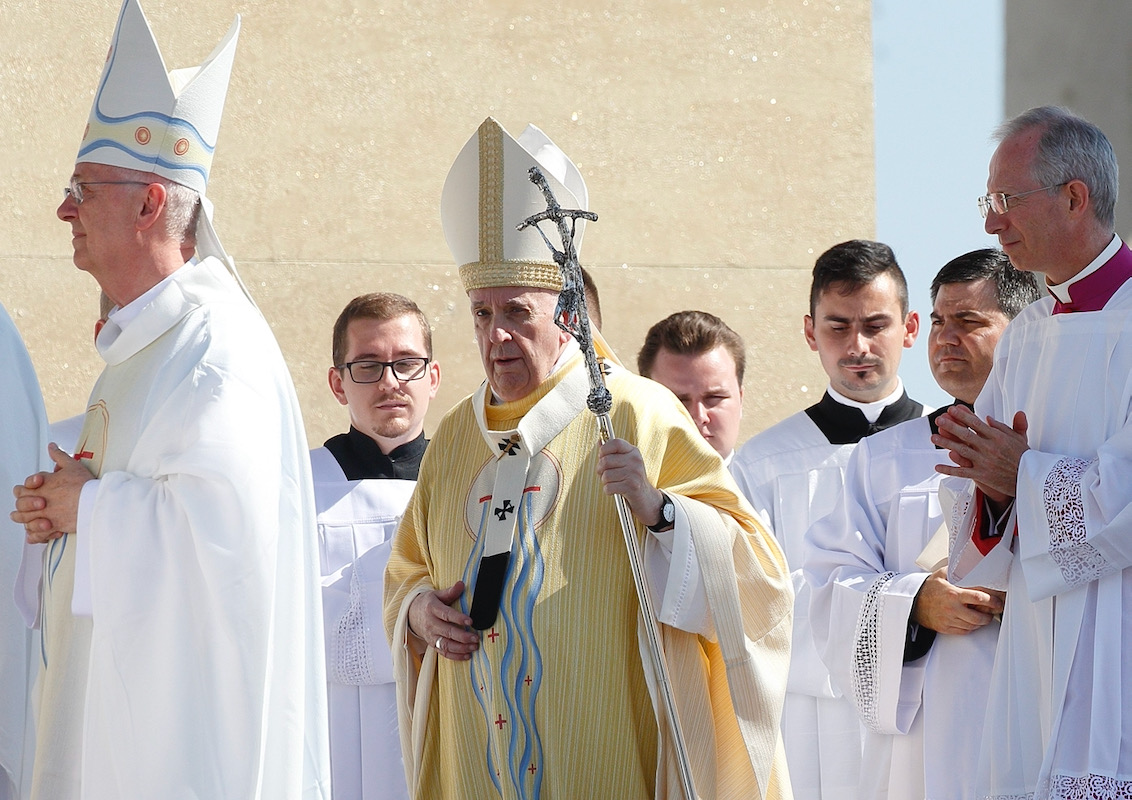Pope Francis arrived in Budapest on Sunday morning to celebrate the closing Mass of the 52nd International Eucharistic Congress. Despite well-known tensions with Prime Minister Viktor Orbán over Hungary’s policies on immigration, the Pope received a rapturous welcome.
In the hour before the Mass began groups of children wound untidily through the throng in Heroes’ Square bearing placards identifying Catholic high schools from across Hungary. Their progress was accompanied by anthems, sung by the vast choir in the Square and relayed on speakers down the Andrássy út Boulevard. Concerns that attendance might be poor proved ill founded: the crowd of more than 100,000 was cheerfully in excess of the 75, 000 projected. The 2011 census data for the Catholic population of Hungary is 37.2 per cent Roman Rite and 1.9 per cent Eastern Rite of a total population of ten million.
At 11.30am, as Mass began, lines still coiled around the tributary streets feeding into Heroes’ Square while worshippers presented reservation passes at the choked entry points. More still, turning up on the spur of the moment, shared in the atmosphere watching the liturgy on screens in crowds which stretched half the length of the Andrassy Boulevard.
Applause followed the popemobile on its journey along the crowd’s edges. Even the famously stern face of Hungary’s Primate, Cardinal Péter Erdo, standing behind Pope Francis, relaxed into a smile as an aide handed up a baby from the crowd to be kissed. Informality marked the entry procession too: some bishops swapped their croziers for rolled umbrellas as protection against the sun; a few priests defiantly sported hats of real straw in place of the regulation synthetic ones distributed by organisers.
Onlookers were attentive during Mass: an opening request not to raise banners or flags during the liturgy, that followed the Novus Ordo’s Latin text, was well observed. Readings were in Spanish and English and the Gospel was chanted in Hungarian. During the Eucharistic Prayer a teenage girl-scout sank to her knees on the hard curb edge without a flicker of self-consciousness. Many others did the same.
Worshippers not forearmed against the sun with parasols or hats sought shelter in shop doorways and beneath the trees that marking the length of Andrássy. Niceties about social distancing and mask-wearing were near forgotten in the exuberance of the occasion. Nevertheless, people were restrained in sharing the Peace, offering smiles and forehead bows to neighbours, not handshakes or hugs.
Inevitably logistics of distributing Communion were complicated and extended. Some faithful were still queuing as the Pope was speaking his final message and indeed during the powerful congregational singing which followed the close of Mass.
In it he reminded Hungarians, including Mr Orban, a member of the Calvinist Hungarian Reform Church who was in the front row at the Mass with his Catholic wife, Aniko Levai, that “the cross, planted in the ground, not only invites us to be well rooted, it also raises and extends its arms towards everyone.”
Certain words in Francis’s homily, expounding Mark 28:9, (“Who do you say that I am”) perhaps nodded to Hungary’s present troubled political context and restrictions on media freedom. The Pope contrasted Jesus “who reigns in silence from the Cross” with “the risk of announcing a false messianism, a messianism according to men and not according to God” which “would like to reign with force and reduce our enemies to silence”.
These remarks drew no immediate response from those attending but clapping punctuated Francis’ farewell as he expressed gratitude to “the great Hungarian Christian family”, which, “I would like to embrace in its rites, its history, its brothers and sisters, both Catholic and those of other confessions: all journeying towards full unity.” The Pope’s use of “köszönöm” (“thank you” in Hungarian) prompted strong and appreciative applause.



 Loading ...
Loading ...